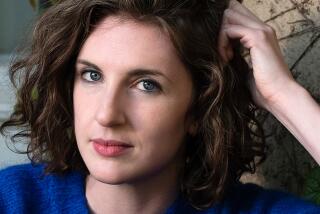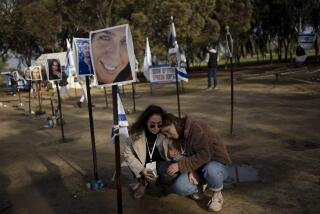Digging up gems — and skeletons: the critic Juan Vidal on writing memoir
I was on the phone with my uncle, a doorman in Queens, when our conversation hit an awkward pause, the kind in which one person is left waiting on the other to reveal the punchline. I’d called him from my home in Atlanta, where I’d recently moved via Miami to finish a book.
“Well?” I asked, expectant. He’d been great so far, digging up gems about our family, but suddenly he froze, mid-sentence.
“I’ll have to run this part by your mother,” he said.
I laughed, wondering if he, like many great storytellers, was being screwy just to pile on the suspense. But his prolonged silence told me that he was serious, that he would not continue — and a familiar sense of dread swept over me.
I reminded my dear uncle that I was a grown man, and more than equipped to handle whatever it was he’d planned to share before his conscience struck.
“It’s not that,” he insisted. “I just want to be respectful. Tu sabes,” he said. “You know.”
Delving into your family history can be horrifying. Delving into your family history for a book you’re writing about the more abject details of your own life can be even more brutal. My parents divorced when I was 9; my father’s absence created a kind of enmity in me that eventually led to rebellious disinterest. But there’s a responsibility you feel to be forthright with the reader, to tell a complete story and still do right by your loved ones — on top of making sense of your own life and pain.
After my father arrived one day with bullet holes in the back of our family car ... my mother had had enough.
In an interview with the Chicago Tribune many years ago, the writer Annie Dillard said, “If you’re going to publish a book, you probably are going to make a fool of yourself.” I want to stretch it further: As long as there are foolish people willing to ask hard questions, there will be books without end.
The trouble with asking too many questions, of course, is that you might get too many answers. But writers are perhaps more akin to curious children — the smart alecks who bombard their parents with endless inquiries — than say, impulse shoppers, who are satisfied with the minimal amount of information before they buy. However, possessing a level of curiosity about one’s family history is not exclusive to writers and creative types. To ask questions is to be human; to obsess over the answers may be part of the neurosis that drives writers to their desks day after day.
When I was young, I often asked difficult questions, the sort my mother rarely found the words for — about my father’s whereabouts, about the strange characters who came by looking for him, why there were men with cameras and binoculars spying on our house. I seldom received any answers that satisfied me, but that didn’t keep me from asking away. All I knew was that his drug habit had taken a dark turn, and he was getting mixed up with awful company.
After their split, the void my father left became the driving force in my life; his absence fostered a deep distrust and hatred of authority that fueled at least my first 25 years.
One recent afternoon, I took my mother to lunch when she came to visit me in my new city. We sat at a roadside restaurant in a quiet neighborhood lush with magnolia trees, and the soft breeze brushed against our faces as we relaxed with our drinks. I told her what my uncle had said, about needing her permission to tell me certain things. My mother has always been open about the heartache she endured while married to my father, and was part of his family. (Just an example: She recently told me the story of my cousin — someone I remember — who’d been murdered in Venezuela after a drug deal gone bad. He was transporting tons of cocaine in speedboats with fake hulls until he got double-crossed by his associates.) She was open too about my father’s constant cheating, some of the details so hideous they made me regret I’d ever asked. I started to wonder, how much do I really need to know? Am I emotionally prepared to go where all this questioning might lead?
“Did I ever tell you about how I got the divorce?” my mother asked.
After my father arrived one day with bullet holes in the back of our family car — he’d gotten involved in a narcotics ring and was making enemies — my mother had had enough. She knew he’d never agree to a divorce, so she went to see a lawyer, who advised her to get my father to leave Miami. The lawyer used the term “uncontested divorce,” which would work in my mother’s favor if her husband wasn’t around to dispute it. She agreed to try.
The day after my father took care of the bullet holes, my mother told him she was open to working on their issues, but under one condition: He would have to go stay with his family in Colombia for a few weeks so she could think about how they could best rebuild their marriage.
“He didn’t know I had no intention of working anything out,” my mother told me. “But he was excited.” After all the pain he’d caused, he thought he could keep his wife and — to top it off — take a nice vacation.
Weeks slid past, and a mutual friend saw my father with a woman on a beach in Cartagena. He called my mother back home and filled her in, confirming once again that she was doing right by putting an end to the relationship.
When the court received no response from my father, my mother got her divorce.
“I called your father, said that I missed him and that he should return,” my mother said. “He was so happy; he went on and on about the surprises he’d gotten me.”
“I have a surprise for you too,” she told him, and left it at that.
When my father came home and got the news, he was hysterical. He trashed the living room and stormed out into the night, disappearing for a full week. But soon my mother began to fear for her life and the lives of her children; not because she saw my father as a threat, but because people he ran with were disappearing all around us.
I finished my beer and sank into my chair, struck silent by what my mother had endured all those years. The cool winter air balanced out the fire I felt in my bones.
In her memoir “Lit,” Mary Karr writes: “For me, everything’s too much and nothing’s enough.” So much of writing, and living, I’ve found, attempts to reconcile this tension — feeling the pressure to face the past while also questioning if it’s even worth it.
I still haven’t finished that conversation with my uncle. But I’ve decided I’d rather not know whatever it is he felt might be too much to tell. Maybe I’ll change my mind down the line, as I often do, but as of now I can’t seem to find good reason to pursue it. I’ve got plenty to work with, much of which has already done its fair share of damage, so I don’t need this. Sometimes, all we need is already in our hands.
Juan Vidal is a writer and critic for NPR, and his work has appeared in Rolling Stone, GQ, Esquire, and elsewhere. His first book, a memoir, is forthcoming in 2018 from Simon & Schuster. He’s on Twitter: @itsjuanlove
More to Read
Sign up for our Book Club newsletter
Get the latest news, events and more from the Los Angeles Times Book Club, and help us get L.A. reading and talking.
You may occasionally receive promotional content from the Los Angeles Times.






